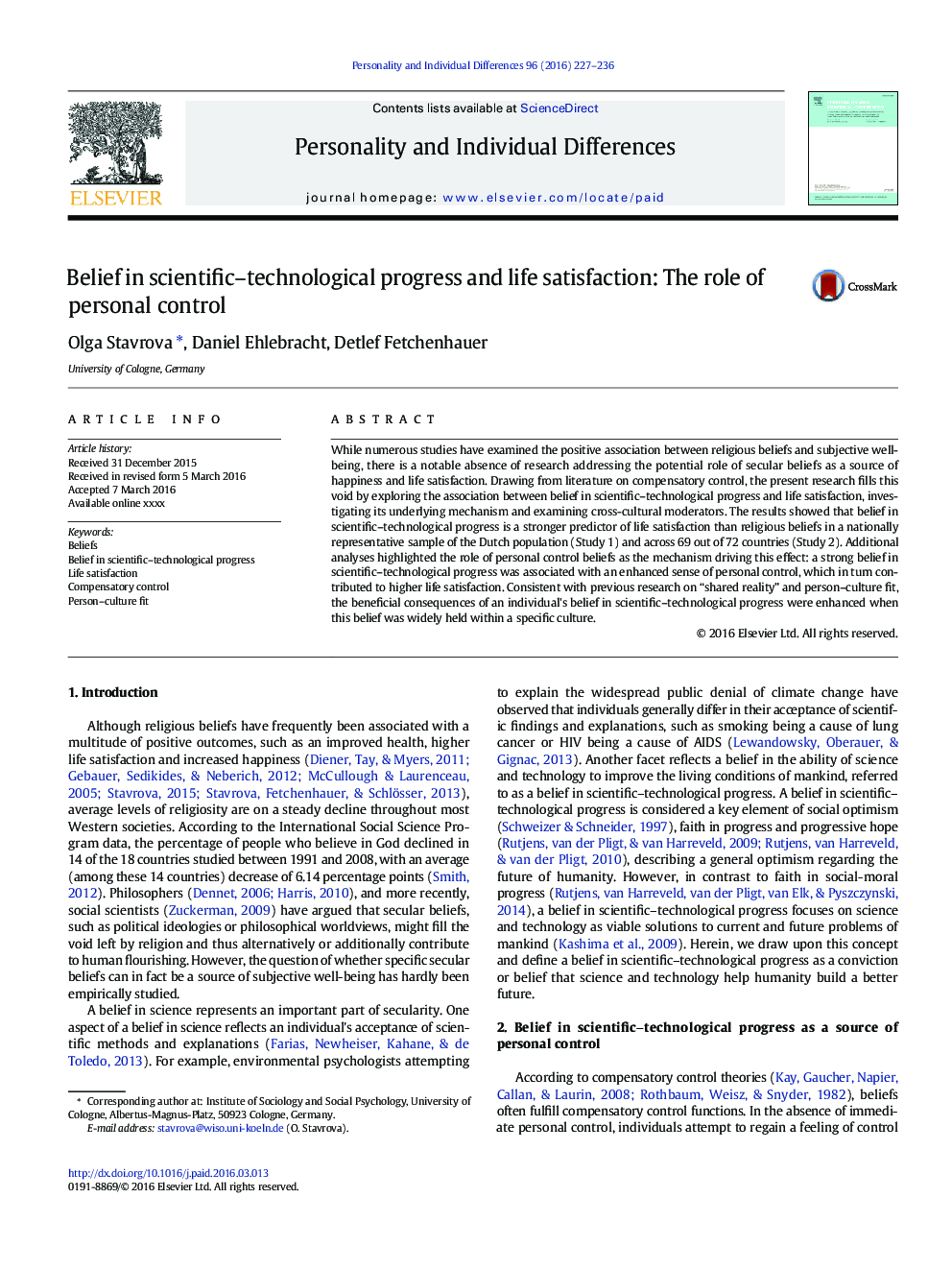| Article ID | Journal | Published Year | Pages | File Type |
|---|---|---|---|---|
| 7250150 | Personality and Individual Differences | 2016 | 10 Pages |
Abstract
While numerous studies have examined the positive association between religious beliefs and subjective well-being, there is a notable absence of research addressing the potential role of secular beliefs as a source of happiness and life satisfaction. Drawing from literature on compensatory control, the present research fills this void by exploring the association between belief in scientific-technological progress and life satisfaction, investigating its underlying mechanism and examining cross-cultural moderators. The results showed that belief in scientific-technological progress is a stronger predictor of life satisfaction than religious beliefs in a nationally representative sample of the Dutch population (Study 1) and across 69 out of 72 countries (Study 2). Additional analyses highlighted the role of personal control beliefs as the mechanism driving this effect: a strong belief in scientific-technological progress was associated with an enhanced sense of personal control, which in turn contributed to higher life satisfaction. Consistent with previous research on “shared reality” and person-culture fit, the beneficial consequences of an individual's belief in scientific-technological progress were enhanced when this belief was widely held within a specific culture.
Related Topics
Life Sciences
Neuroscience
Behavioral Neuroscience
Authors
Olga Stavrova, Daniel Ehlebracht, Detlef Fetchenhauer,
